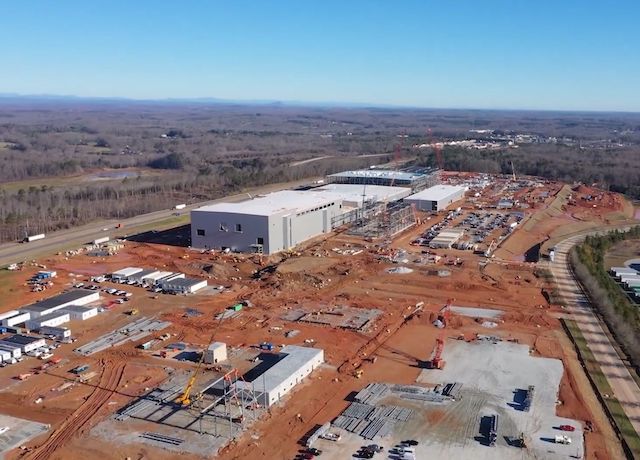
LG Energy Solutions and SK Innovation’s fierce battles for the past two years have ended with some wins of LG Energy Solutions.
In fact, as the final judgment cited the ruling of early loss determined in February last year, SK Innovation’s battery production in the United States will be disrupted for the next 10 years. However, imports and production of parts for batteries supplied by SK to Kia, Ford and Volkswagen are temporarily allowed.
The US International Trade Commission (ITC) made a final decision on the 10th (local time) to ban the US production and import of some lithium-ion battery cells, modules, and packs of SK Innovation for 10 years.
At the same time, ITC announced that the import of battery cells, modules and packs for the Ford electric pickup truck’F-150′ and Volkswagen’MEB’ supplied by SK will be allowed for a temporary period of 4 and 2 years, respectively. It also allowed imports of products for repair and replacement of batteries for Kia electric vehicles currently on sale.
LG Energy Solutions said, “We welcome the final victory of the lawsuit.”
An official from SK Innovation said, “We are sorry for the ITC decision, but we are fortunate to be able to supply it to Ford and Volkswagen,” and “We will do our best to the remaining procedures.”
After two years of fighting… LG Energy Solutions laughed
The legal battles between the two companies have been going on for about two years since April of last year. The issue was whether SK Innovation infringed on trade secrets such as the subtraction of manpower and technology from LG Chem.
LG Energy Solutions (at the time, LG Chem) claimed that 76 employees from all business divisions have been leaked to SK Innovation since 2017, and that key trade secrets such as battery mass production technology and core process technology were contained in their job application documents.
SK Innovation responded strongly, saying that LG Chem has filed an unfounded lawsuit. Recruitment of experienced employees was conducted transparently according to the intentions of the parties, and dismissed that it was merely an unfounded grip. As SK filed a lawsuit for indemnification and damages in a domestic court, the battery battles later spread to counter suits such as patent litigation.
The ITC’s final decision on this day was a de facto quote from the Initial Determination made by SK Innovation in February of last year. At the time, ITC accepted LG’s claim that’SK Innovation deleted data that could be evidence of this lawsuit, and committed contempt of the court, including violation of ITC’s forensic (analyzing scientific evidence) order.’

SK Ino, inevitable disruption in the US battery business
SK Innovation is expected to disrupt the US battery business. Immediately, the operation of the Georgia battery plant in the US is expected to have an impact.
The ITC put a condition that only parts for Kia, Ford, and Volkswagen will be allowed to import parts for a limited time, but industry analysts say that this does not mean much since the Georgia plant has not yet been completed. The company’s mid- to long-term goal to have an annual production capacity of 125 gigawatt hours (GWh) + alpha (α) by 2025 is also in danger.
If there is a disruption in SK Innovation’s US business, it is highly likely that local automakers such as Ford and Volkswagen will be hit and negatively affect the economy, such as jobs. Attention is also drawn to the possibility of US President Joe Biden’s veto exercise. However, it is unclear to what extent the US administration will be able to engage in corporate intellectual property disputes.
Related Articles

Final ruling is imminent on LG-SK battery trade secret infringement lawsuit

“The patent is ours”… LG-SK battery lawsuit intensifies

Ford and Volkswagen express concern over’LG-SK battery lawsuit’

[속보] US ITC quotes SK Innovation’s early defeat decision… Ban on import of batteries for 10 years
As a result of this lawsuit, attention is also paid to whether the agreement between the two companies will rise rapidly. ITC litigation is a civil litigation, so even after the final decision, if both companies agree, the results of the litigation can be reversed immediately.
The two companies are currently in conflict over the amount of compensation. This is because the settlement amount for infringement lawsuits may be expanded to trillion units. The legal expenses that both companies have spent over the past year due to battery litigation have reached 200 billion won, which is reflected in the profits and losses of both companies’ battery business. In addition to this lawsuit, there are still patent litigations and damage claim litigations, so costs are expected to increase significantly in the future.
